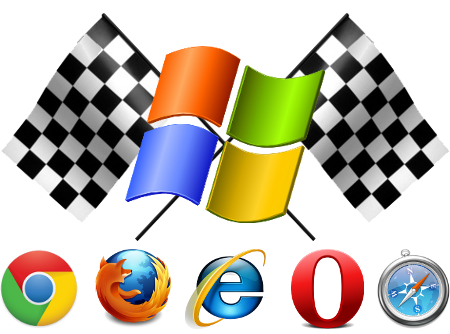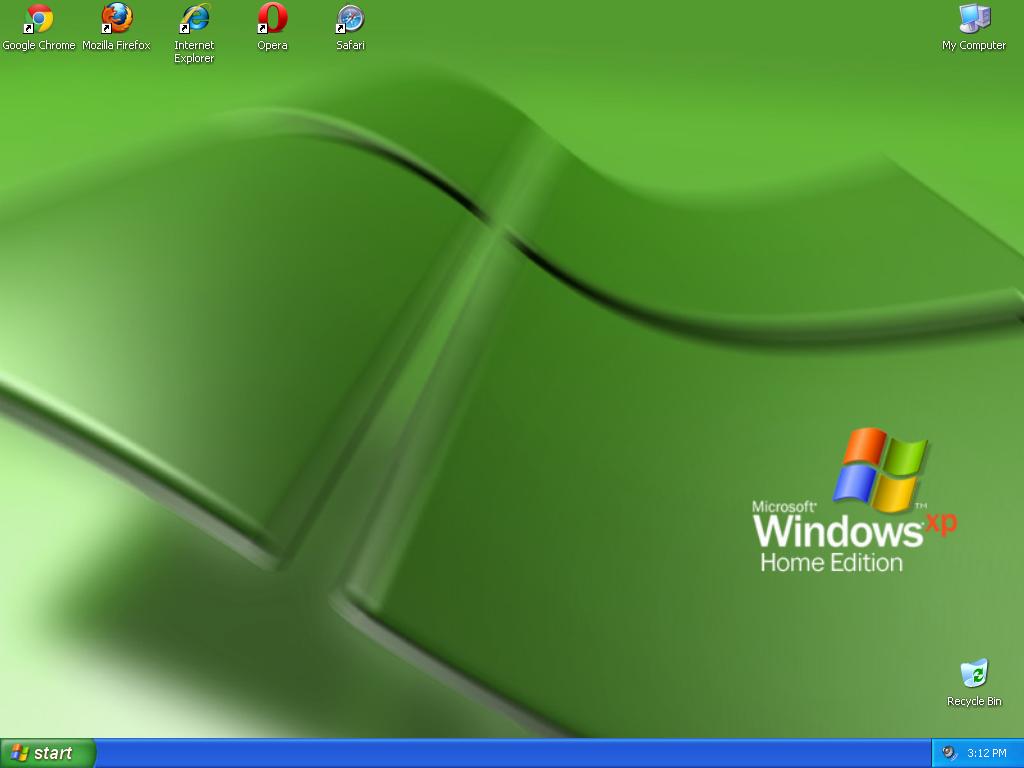Web Browser Grand Prix: Chrome 18, Firefox 11, Windows XP
Over the past two years, we've tested the top five Web browsers using modern PC hardware. But today, going against all that is sacred to the enthusiast crowd, we're breaking out an old beige box to bring you Web Browser Grand Prix: Windows XP Edition!
Get Tom's Hardware's best news and in-depth reviews, straight to your inbox.
You are now subscribed
Your newsletter sign-up was successful
Tom's Hardware's Tenth Web Browser Grand Prix
This is the tenth installment of the Web Browser Grand Prix series. To commemorate that number, our test system is going back ten years in time.
That's right, back to the days of IDE hard drives, AGP graphics, CRT monitors, and Windows XP.
Granted, this type of test rig doesn't exactly fit with the regular Tom's Hardware crowd, which no doubt leaves a lot of enthusiasts asking one question: "Why?"
Though most of you probably haven't used a system like this since the early 2000s, I'm willing to bet you're stuck supporting at least one person still plugging along on a similarly spec'ed machine as their daily driver. Whether it's Grandma, Grandpa, Mom, Dad, Aunt Harriet and Uncle Al, or that neighbor who received your hand-me-down machine back in 2003, we all get dragged into it. It's inevitable. The calls for help will come.
Since browsing the Web is one of the only modern tasks such a system is capable of, more often than not the issue usually has something to do with "the Internet being slow." So, can the Web browser you leave on that dilapidated machine play any part in making the pre-Vista experience better? If so, by how much?
Before we can get to the embarrassingly-low benchmark scores and the answers to these questions, let's get caught up on what has happened in the world of Web browsers since Web Browser Grand Prix 9:
Recent News & Events
Get Tom's Hardware's best news and in-depth reviews, straight to your inbox.
02/15/12: Mozilla spells out its Firefox roadmap for 2012. The browser is to receive a new JavaScript engine and user interface in Q2.
02/21/12: Microsoft accuses Google of bypassing IE privacy settings. Google contends that IE's cookie technology is "widely non-operational".
02/28/12: Google offers up a million dollars in prizes for hacking Chrome.
03/13/12: Mozilla releases Firefox 11.
03/19/12: Google Chrome surpasses Microsoft Internet Explorer in browser market share for a single day.
03/23/12: Even at three years old, Microsoft Internet Explorer 8 is still the number-two browser, holding an estimated 17% market share, second only to Chrome 17 at 27%.
03/25/12: Microsoft claims Chrome market share statistics are misleading due to Chrome's pre-rendering and the lack of geoweighting by the major stat trackers.
03/27/12: Opera updates to version 11.62 on the desktop.
03/28/12: Mozilla launches BrowserQuest, an HTML5 game that looks suspiciously like The Legend of Zelda: A Link To The Past.
03/28/12: Google releases Chrome 18 to the stable channel.
03/29/12: Mozilla says that the new six-week release cycle for Firefox is not set in stone.
Now, let's take a quick look at past Web Browser Grand Prix winners and today's contenders.
Current page: Tom's Hardware's Tenth Web Browser Grand Prix
Next Page Chrome, Firefox, Internet Explorer, Opera, And Safari-
wheredahoodat "Both Opera and Chrome feltmuch smoother on our old PC than Firefox"Reply
I do kinda feel the difference with Firefox's responsive going from my main modern desktop to my older labtop that has regulated to a makeshift HTC. I believe Firefox XUL interface is the culprit; it was a big enough problem for Firefox mobile to abandon it in favor of native Android GUI, but who knows at this point. I guess might actually give Opera a chance. -
agnickolov How come only a single reader requested numerical composite scoring, that's the most logical way of scoring after all! With that said, I'd have liked if you didn't use the rankings but the raw scores after a more intelligent transformation as the input for weighted averaging...Reply
For example, for each category you could subtract the lowest-placed score from all scores and then normalize in the range by dividing all adjusted scores by the topmost adjusted score. This way the top perfomer always has 1 and the worst performer always has 0 modified score (you'd need to invert them for tests where lower is better of course, e.g. subtract these from 1). Then apply your ranks to these scores and you get the composite score. It's not a perfect transformation, but it certainly has more fairly distributed weight (pun intended) than what you have used here. -
aznjoka Thats my Opera, for those who have never tried Opera. It's an amazing piece of software, it does the job, and it does it better then most.Reply -
confish21 Interesting move to make this article. Well done! Don't waste your time on a vista run though... Im so close my release date. xDReply -
csbeer aznjokaThats my Opera, for those who have never tried Opera. It's an amazing piece of software, it does the job, and it does it better then most.Reply
XP can't run 9. Need to upgrade OS in order to get higher IE. -
mayankleoboy1 excellent review!Reply
some points:
1.A lot of corporates still use IE7. maybe you should include that too in your benchmarks
2.if you remove HTML5 (with and without H/W acceleration), i think Opera's victory margin will be quite huge.
3.Regarding smoothness, i beleive FF is quite poor in this. But the developers know about it and are very activle working on it. I thik FF13 will be the release when smoothness will improve. look at "Firefox Snappy".
4. i would like to have a subjective recommendation at the end of the article, something you subjectively felt was the best amongst all the browsers, even though it may be trailing in numbers. -
mayankleoboy1 Why did you use the AGP? I bet 99.99% of those Pentium4 era computers use the onboard Intel IGP.Reply
Also that would definitely disable the H/W acceleration of browsers.

